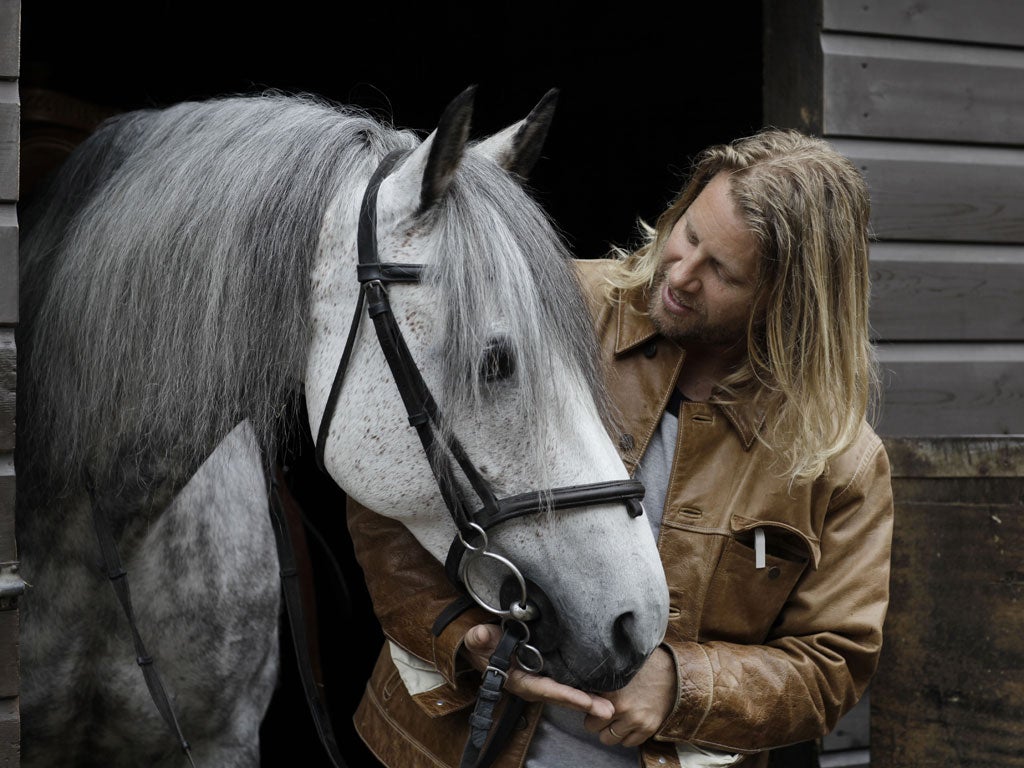How riding a horse taught a boy to speak
A father has found a therapy that can transform autistic children

Your support helps us to tell the story
From reproductive rights to climate change to Big Tech, The Independent is on the ground when the story is developing. Whether it's investigating the financials of Elon Musk's pro-Trump PAC or producing our latest documentary, 'The A Word', which shines a light on the American women fighting for reproductive rights, we know how important it is to parse out the facts from the messaging.
At such a critical moment in US history, we need reporters on the ground. Your donation allows us to keep sending journalists to speak to both sides of the story.
The Independent is trusted by Americans across the entire political spectrum. And unlike many other quality news outlets, we choose not to lock Americans out of our reporting and analysis with paywalls. We believe quality journalism should be available to everyone, paid for by those who can afford it.
Your support makes all the difference.When Rupert Isaacson's son, Rowan, was diagnosed, aged two and a half, with autism, his tantrums, lack of communication and obsessive behaviour left his parents fearing they would never break through the barriers separating them from him. Seven years later, Rowan is transformed: he's academically advanced for his age and, unusually for someone with autism, has strong friendships.
This radical change stems from a chance meeting with a horse which built into an incredible relationship that led to Rowan learning to talk, read and tackle maths problems.
So remarkable was the friendship between horse and boy, Mr Isaacson wrote a bestselling book about it – The Horse Boy – which is currently being made into a feature film.
Now he is bringing his approach to the UK. The Horse Boy Foundation will be launched this autumn to help fund horse camps for autistic children and their families, to be held across Britain.
Mr Isaacson says the method – which focuses on developing a relationship with the horse rather than riding skills – is also effective for people with bipolar disorder, depression, or who are tackling obsessive behaviours. The Priory Group, the mental health provider, is interested in adopting the therapy. The Eden Project's founder Tim Smit suggested holding camps in St Austell and, in tandem with Mr Isaacson, plans to hold Horse Boy music festivals for autistic families at Eden from next year.
Mr Isaacson gave up riding when his son was diagnosed with autism, but both he and his wife, Kristin, a developmental psychologist, noticed Rowan's behaviour improved in nature. "He would have fewer tantrums; there would be less rocking."
Then, one day, Mr Isaacson, who lives in Texas, was in the woods with Rowan when his son ran under a fence towards his neighbour's mare Betsy. "She started licking Rowan," he remembers. From that moment, Rowan spent his time in the saddle.
On his first day riding, he used expressive language. He had been echolalic – only able to repeat what someone had said – but on horseback, sharing a saddle with his father, he saw a heron take flight. "Heron" became his first expressive word.
"We'd had a pretty grim year up till then. It felt like the door to his mind was opening," Mr Isaacson says.
On horseback, Rowan learnt the difference between ivy and poison ivy; that snakes can be harmful but lizards are not. His language developed; he learnt numbers through counting horses' paces and learnt to read – first through the letters of road signs, later with books.
"When he was moving, he was learning: the rhythm of the horse helped," his father says. He believes movement is crucial to his son's progress, as the pleasure hormone oxytocin is produced from the rocking rhythm of riding.
In 2007, Mr Isaacson, now a screenwriter, Kristin and Rowan travelled around Mongolia on horseback, meeting shamans. It was here that Rowan's incontinence, his inability to make friends and his constant tantrums became a thing of the past.
Rowan's progress has surprised his parents. "His vocabulary is that of an older kid, while his interactions those of a younger one," Mr Isaacson says.
Join our commenting forum
Join thought-provoking conversations, follow other Independent readers and see their replies
Comments